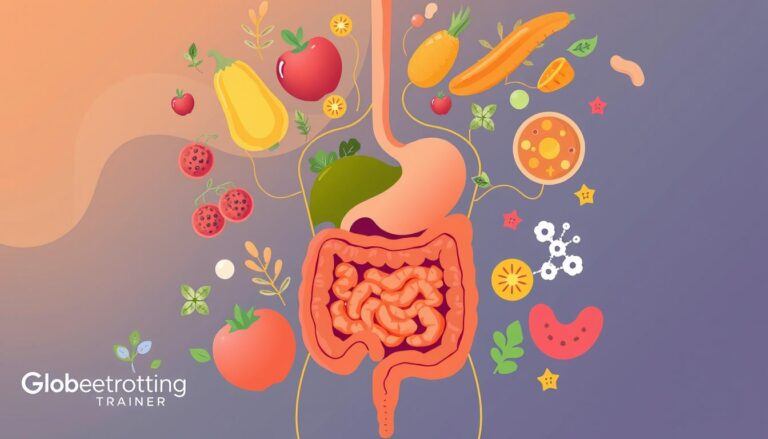The Mind-Gut Connection: Your Brains Impact On Mental Wellness
Have you ever experienced butterflies in your stomach before a big presentation or felt nauseous during times of stress? The mind-gut connection explains these powerful physical responses to our emotional states. Scientists now understand that the relationship between our brain and digestive system runs deeper than previously thought, influencing everything from mood to mental clarity.
Understanding Your Second Brain
The mind-gut connection represents one of the most fascinating discoveries in modern medical science. Within the walls of your digestive system lies an intricate network of neurons called the enteric nervous system, often referred to as our “second brain.” This remarkable system contains over 100 million neurons, more than those found in your spinal cord.
What makes this connection even more intriguing is that about 90% of serotonin, our body’s natural “feel-good” chemical, is produced in the gut rather than the brain. The vagus nerve, a superhighway of neural signals, creates a direct communication channel between these two vital organs, constantly sending messages back and forth.
Signs Your Gut Is Affecting Your Mental Health
When the mind-gut connection becomes disrupted, various symptoms can emerge. Many people experience brain fog, difficulty concentrating, or unexplained mood swings. These symptoms often coincide with digestive issues, creating a cycle of physical and emotional discomfort.
The relationship between anxiety and gut health particularly demonstrates the power of the mind-gut connection. Studies show that individuals with digestive disorders are more likely to experience anxiety and depression, while those with mental health conditions often report gastrointestinal symptoms.
Supporting Your Gut-Brain Axis
Improving your mind-gut connection starts with conscious dietary choices. Here are key strategies to enhance this vital relationship:
Fermented Foods
Include probiotic-rich foods like kimchi, kefir and yogurt in your daily diet. These foods introduce beneficial bacteria that support both digestive and mental health. Start with small portions and gradually increase to allow your system to adjust.
Prebiotic Power
Feed your beneficial gut bacteria with prebiotic-rich foods such as garlic, onions and bananas. These foods provide the necessary nutrients for your microbiome to thrive and maintain optimal communication along the gut-brain axis.
Anti-inflammatory Foods
Incorporate foods that combat inflammation, like fatty fish, leafy greens and turmeric. Chronic inflammation can disrupt the mind-gut connection and contribute to both digestive and mental health issues.
Lifestyle Factors That Impact Your Gut-Brain Health
The mind-gut connection responds strongly to your daily habits. Regular exercise promotes healthy digestion and releases endorphins that boost mood. Quality sleep allows your digestive system to repair and regenerate, while stress management techniques benefit both brain and gut health.
Consider implementing these practices:
– Daily movement, even gentle walking, to stimulate healthy digestion
– Mindful eating practices to enhance nutrient absorption
– Stress-reduction techniques like deep breathing or meditation
– Consistent sleep schedule to support gut repair
The Science Behind the Connection
Recent research into the mind-gut connection reveals fascinating insights about our overall health. Scientists have discovered that specific probiotics, called psychobiotics, can positively influence mental health by modulating neurotransmitter production and reducing inflammation.
Your gut microbiome plays a crucial role in this relationship, hosting trillions of bacteria that influence everything from emotional regulation to cognitive function. When this delicate ecosystem becomes unbalanced, it can affect both physical and mental wellbeing.
Taking Action for Better Gut-Brain Health
Understanding the mind-gut connection empowers you to take control of your health. Start by keeping a food and mood journal to identify patterns between what you eat and how you feel. Pay attention to foods that enhance your mental clarity and energy levels.
Consider these daily habits:
1. Eat a diverse range of whole foods
2. Stay hydrated throughout the day
3. Practice mindful eating without distractions
4. Incorporate fermented foods regularly
5. Manage stress through regular relaxation practices
The mind-gut connection represents a fundamental aspect of our overall health and wellbeing. By nurturing this vital relationship through proper nutrition, stress management and lifestyle choices, we can support both our mental and physical health. Remember, small changes in diet and daily habits can lead to significant improvements in how you think, feel and function.
Take time to listen to your body’s signals and honor the connection between your mind and gut. Your digestive system does more than process food – it plays a crucial role in your emotional and mental wellbeing through the intricate mind-gut connection.







